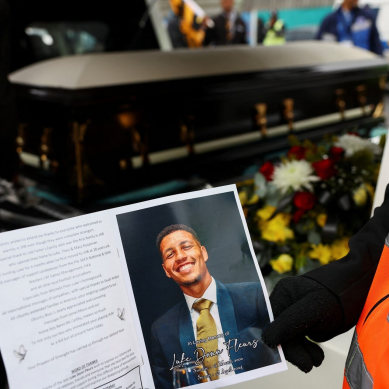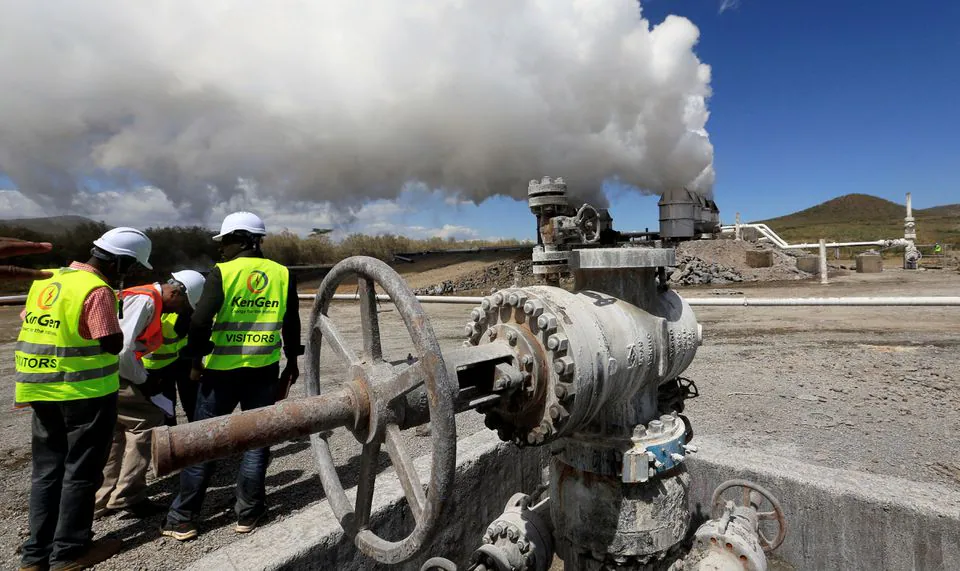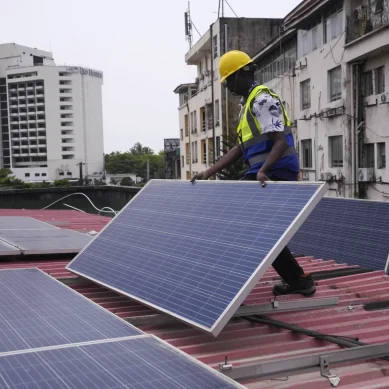
The campaign to eradicate cervical cancer in low- and medium countries is reminiscent of the Bill & Melinda Gates Foundation’s previous campaign, also initiated by the WHO and supported by Gavi, UNICEF and others, to eradicate polio.
That campaign eventually faltered and also led to “a massive outbreak of vaccine-derived infections” that “engulfs much of Africa,” the BMJ reported. By the end of 2020, Gavi funded the introduction of the HPV vaccine in 13 African countries. Now, it is behind the new round of rollouts.
“I am deeply disturbed by continuing Big Pharma/GAVI/WHO attacks on African people, at the tip of blatantly unnecessary, dangerous and expensive injections,” Shabnam Palesa Mohamed of Children’s Health Defence Africa told The Defender. “It is critical that we strengthen our efforts to raise awareness in Africa about Big Pharma crimes and informed consent.”
But, she added, there is a lot of resistance to this programme by African people. “African countries fulfilled an important role in rejecting most dystopian amendments to the International Health Regulations at the WHO’s World Health Assembly 75 last year.”
According to Gavi, nearly 80-90 per cent of the approximately 300,000 deaths per year from cervical cancer – the fourth most common cancer among women – occur in low- and middle-income countries and the majority occur in sub-Saharan Africa.
About 8,000 women die per year from cervical cancer in Nigeria, Muhammad Ali Pate, the coordinating minister of Health & Social Welfare, said. The higher rates are largely attributed to low screening coverage for cervical cancer and limited treatment options in the region, although actual numbers vary widely from country to country.
The HPV virus can lead to cervical cancer, but the vast majority of infections clear on their own. There are more than 150 strains of HPV. High-risk HPV types can cause cervical cell abnormalities that are precursors to cancer, although HPV infection is not the sole risk factor for cervical cancer.
Regular pap screening has been found to reduce the incidence and mortality of cervical cancer among women by at least 80 per cent. But Gavi argues, “Cervical cancer is almost entirely vaccine-preventable, which means that alongside screening for early detection, rolling out the HPV vaccine is critical to preventing infections.”
Public health officials like Dr Diane Harper from the University of Michigan’s Department of Family Medicine celebrate Gavi’s strategy. Harper told The Defender, “Nigeria is making awesome strides in eliminating the risk of cervical cancer in its population by vaccinating its girls.”
Lyons-Weiler disagreed: “First, the studies never showed that HPV vaccines reduce the incidence of cervical cancer. Instead, they showed the HPV vaccines reduce the prevalence of cervical intraepithelial neoplasia, a precondition sometimes associated with cervical cancer, associated with HPV-vaccine targeted HPVs.
“The second important point, and this is directly related to the first, is that the biomedical research literature is filled with studies that show that HPV vaccination programs have actually caused the replacement of the previously most common types of HPVs with rarer types of HPVs that also cause cancer. This is known as HPV-type replacement.
“Rarer types of HPVs can be less common because they are more deadly. So this means that HPV vaccine programmes should lead to an increase in cervical cancer rates even in fully vaccinated populations, involving more aggressive cancers at an earlier age.”
Studying HPV vaccine efficacy for eliminating cervical cancer is challenging due to the length of time between infection and the development of cancer (mean time 23.5 years), lack of adequate informed consent, complexity between HPV infection and cervical cancer, and the negative impact of girls’ sexual behaviour, which may worsen the risks of cervical cancer.
The Gardasil vaccine has been linked to myriad adverse events. Some of the signature impacts observed following HPV vaccination include permanently disabling autoimmune and neurological conditions such as postural orthostatic tachycardia syndrome, or POTS, fibromyalgia and myalgic encephalomyelitis/chronic fatigue syndrome.
Q22There have been thousands of reports of adverse events worldwide. Peer-reviewed scientific literature from the US, Australia, Denmark, Sweden, France and Japan and statistics published by public health agencies in each of these countries demonstrate plausible associations between HPV vaccination and autoimmune conditions.
Merck keeps a database of such reported adverse events but does not make that information public. A North Carolina district judge ordered Merck to turn over all of its Gardasil adverse events databases to plaintiffs suing the pharmaceutical giant for injuries allegedly caused by the vaccine.
The federal Vaccine Injury Compensation Programme has paid out more than $70 million to people making claims regarding Gardasil for injuries. There are currently about 80 cases pending against Merck for vaccine injuries in federal court in the US
Michael Baum, senior partner at Wisner Baum and the attorney representing vaccine-injured plaintiffs in several lawsuits against Merck, told The Defender that the data on HPV vaccine injuries in the US raises serious concerns about Nigeria’s mass vaccination programme:
“US data makes it clear that vaccinating millions of Nigerian girls with Gardasil will cause a staggering number of serious adverse events, including death. Before Covid, Gardasil had more adverse event reports in the US than any other vaccine.
“We know it is dangerous, and on top of that, its efficacy in preventing cervical cancer has never truly been established. There is not a single study that shows Gardasil can prevent cervical cancer because Merck’s studies were not designed to establish that claim. Nevertheless, Merck markets Gardasil around the world as a ‘cervical cancer vaccine.’
“If the company were interested in backing up this claim, it would have conducted long-term studies by now. But it hasn’t. I believe the sad truth is Merck cares more about profit than it does people.”
According to an article in the British Journal of Clinical Pharmacology, most low- to middle-income countries have very low reporting rates for adverse events associated with vaccines or other pharmaceutical products, so it is difficult to know how many adverse events have been associated with the rollouts that have happened so far.
Lyons-Weiler told The Defender that resources now going into vaccination should instead go toward cervical cancer screening, which for most people is a curative diagnostic.
“Early detection is key, and delaying screening because one feels protected due to the misleading narrative over HPV vaccines protecting against cervical cancer will lead to increased cases of late-stage cancer, and deaths,” he said.
Harper also supported screenings, but also strongly supported the vaccines. “It is not a question of investing only in vaccination or only in screening. Both are necessary. Compromises in the amount of finite money allocated to each will be necessary, but both are necessary.”
Kim Mack Rosenberg, CHD acting general counsel and co-author of The HPV Vaccine on Trial told The Defender: “Having studied the HPV vaccines in depth for several years, I am profoundly concerned about Nigeria’s mass vaccination campaign. Instead of vaccinating millions of girls, steps should be taken to reduce risk factors that may contribute to cervical cancer, including early pregnancy and multiple pregnancies, poor nutrition and poor nutritional status, lack of access to clean cooking fuels, and others.
“Moreover, there have been so many innovations in cervical cancer screening that now enable doctors and others to more easily screen, even in rural areas.”
In the US, the current HPV vaccination schedule recommended by the CDC is two doses of Merck’s Gardasil 9 vaccine for children ages 9-14 and three for those ages 15 and up. Gardasil 9, which protects against 9 HPV strains, is the only HPV vaccine distributed in the U.S.
Nigeria’s vaccine advisory committee in 2021 recommended Gardasil’s quadrivalent HPV vaccine for use in Nigeria, which protects against four strains.
When the vaccine first came on the market, the WHO recommended a three-dose course of any version of the vaccine – but in 2014, it changed its recommendation to two doses as part of routine vaccination.
Last year, the WHO announced that “a single-dose Human Papillomavirus (HPV) vaccine delivers solid protection against HPV,” and it changed its recommendations again to “a one or two dose schedule” for girls and women ages 9 and up, based on “evidence emerging over past years,” but without any citations.
But most of the press release celebrated the single-dose recommendation as “less costly, less resource intensive and easier to administer,” predicting that it would be a “game-changer,” adding that “a single-dose recommendation has the potential to take us faster to our goal of having 90 per cent of girls vaccinated by the age of 15 by 2030.”
Lyons-Weiler said the language around dosing was “absolutely misleading,” because the shift to “one or two doses” doesn’t actually make a shift from the recommended two-dose schedule, but might make it easier to get buy-in to the program by sceptics.
- The Defender report











